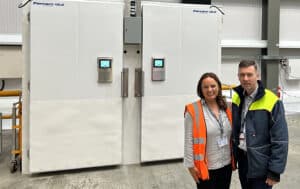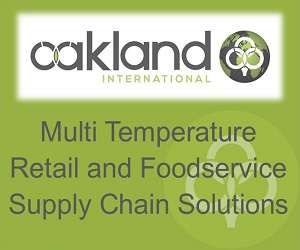Logistics and supply chain solutions for temperature-sensitive goods continue to experience challenging conditions post covid.
The sector has witnessed escalating prices in air freight which are proving crippling for some businesses. Charges at Heathrow have increased at a rate which is out of kilter with any other UK airport, while the standard of service declines. For example, it costs £880 to offload a four-tonne pallet from the aircraft onto an ambient lorry which then transports the cargo to an ambient transit shed when precisely the same movement for goods being moved from Stansted to its shed is £37.50! Yet the same movement for exported costs at Heathrow is £55! As a business committed to maintaining the cold chain, PML is concerned that perishable goods can be held in an ambient warehouse for four to six hours after the plane has landed. They are then potentially held a further one to six hours before they are processed and ready for collection in a temperature controlled (not ambient) vehicle for their onward journey to the retailer.
The excessive handling charges, combined with the lengthy delays are likely to trigger an enhanced interest in shifting to sea freight, especially as exporters continue to identify new and inventive ways to maintain temperature control whilst the goods are in transit. At PML, we are experiencing an increase of 10-15% in our sea freight offering, compared to the same period last year
Pricing post covid
It was inevitable that the pandemic would prove disruptive for those responsible for the transfer of perishable goods, both in terms of availability of trade routes and also price increases. Post covid, while we are not seeing such astronomical hikes in pricing, the air freight rates have still not returned to pre-pandemic levels. Sadly, this has meant many companies have been forced out of business as a result of untenable inflated operational and trading costs.
Delays for the foreseeable
News stories detailing the significant delays at UK ports, especially Dover have become a regular item across various media channels. Brexit and shortage of HGV drivers (many European drivers are now unwilling to drive in the UK due to the ULEZ charges, poor welfare facilities and anticipated holdups) have played a key part in this issue and unless dramatic changes are forthcoming, it looks likely that these will continue and indeed get worse. In October the new inspection parameters for imported goods coming into the UK will be activated and unless the government takes heed of the feedback from logistics firms working within the fresh produce sector, this will take the delays to a whole new level.
Innovating the sector
PML has teamed up with European Forwarder Tulpin Group to forge a strategic alliance designed to speed up the transfer of perishable goods from Egypt to the UK.
PML takes responsibility for the last mile delivery of fruit and vegetable consignments that have been shipped by air from Egypt. The agreement comprises Tulpin Group’s own customs agency / haulage company All-Trade/Ostendfresh collecting the freight from Ostend airport and loading into trailers. The trailers are driven to the ports of Dunkirk and Calais and the consignment dropped onto a RoRo ferry destined for the Port of Dover. Tulpin Group advises PML in advance of any required information to enable a seamless customs clearance and potential inspection. PML collects the trailers from Dover, taking them to the company’s state-of-the-art logistics and transport hub at Lympne, Kent for clearance via the company’s approved Border Control Post. After clearance, PML delivers to the end customer and then returns the trailers to the port for transfer back to Belgium, to enable the process to be repeated. It is anticipated that during the peak season, there are up to 20 trailer movements per day.
The advantages to this arrangement include a faster turnaround of trailers allowing for more freight to be moved; no requirement for down time for EU drivers saving time and money; elimination of the risk of EU drivers being caught up in queues resulting in problems with managing driver schedules / drivers becoming frustrated and addressing the growing reluctance for EU drivers to drive to the UK post Brexit.
PML has already handled 7.5 million kilos worth of Egyptian strawberries through the partnership, around 800 trucks worth. This is alongside its clearance operations in Kent out of Morocco of mixed berries, which amounts to clearing 1,200 trucks, proving both trade routes have been a roaring success.











